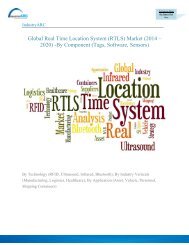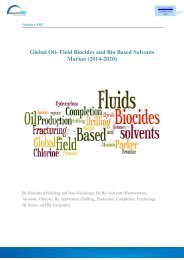Global Electric Power Steering (EPS) Market Analysis and Forecast (2014 – 2020)
Electric power steering (EPS) uses an electric motor to assist during the driving of a vehicle. Sensors detect the position and torque of the steering column, and a computer module applies assistive torque via the motor, which connects to either the steering gear or steering column. Passenger, commercial, light commercial vehicle, sports cars are the different end-user segments of EPS. Manual, hydraulic and electric powered steering systems are the key electric power steering types present in the market currently. Electric steering systems are mechanically less complex with fewer moving parts and no fluids. It is, hence, more reliable as well as simpler for the OEMs and customers too. Fuel economy is the biggest benefit to the end customers due to EPS and is the major driver for this market growth. It is estimated that significant fuel savings of around 0.3-0.4 liters/100km along with reduction in CO2 emissions of 5-7g/km can be attained due to EPS. With electric cars growing in shipments and offering competition to fuel-based cars, EPS systems are the key factors, especially for traditional automotive OEMs to prolong their business.
Electric power steering (EPS) uses an electric motor to assist during the driving of a vehicle. Sensors detect the position and torque of the steering column, and a computer module applies assistive torque via the motor, which connects to either the steering gear or steering column. Passenger, commercial, light commercial vehicle, sports cars are the different end-user segments of EPS. Manual, hydraulic and electric powered steering systems are the key electric power steering types present in the market currently. Electric steering systems are mechanically less complex with fewer moving parts and no fluids. It is, hence, more reliable as well as simpler for the OEMs and customers too. Fuel economy is the biggest benefit to the end customers due to EPS and is the major driver for this market growth. It is estimated that significant fuel savings of around 0.3-0.4 liters/100km along with reduction in CO2 emissions of 5-7g/km can be attained due to EPS. With electric cars growing in shipments and offering competition to fuel-based cars, EPS systems are the key factors, especially for traditional automotive OEMs to prolong their business.
You also want an ePaper? Increase the reach of your titles
YUMPU automatically turns print PDFs into web optimized ePapers that Google loves.
To Enquire About<br />
the Report Click<br />
Here<br />
11.29. Anhui Finetech Machinery Co., Ltd<br />
11.30. Hafei Industrial Group Automobile Redirector Obligate Co., Ltd.<br />
12. Appendix<br />
12.1. Abbreviations<br />
12.2. Sources<br />
12.3. Research Methodology<br />
12.4. Bibliography<br />
12.5. Compilation of Expert Insights<br />
12.6. Disclaimer

















